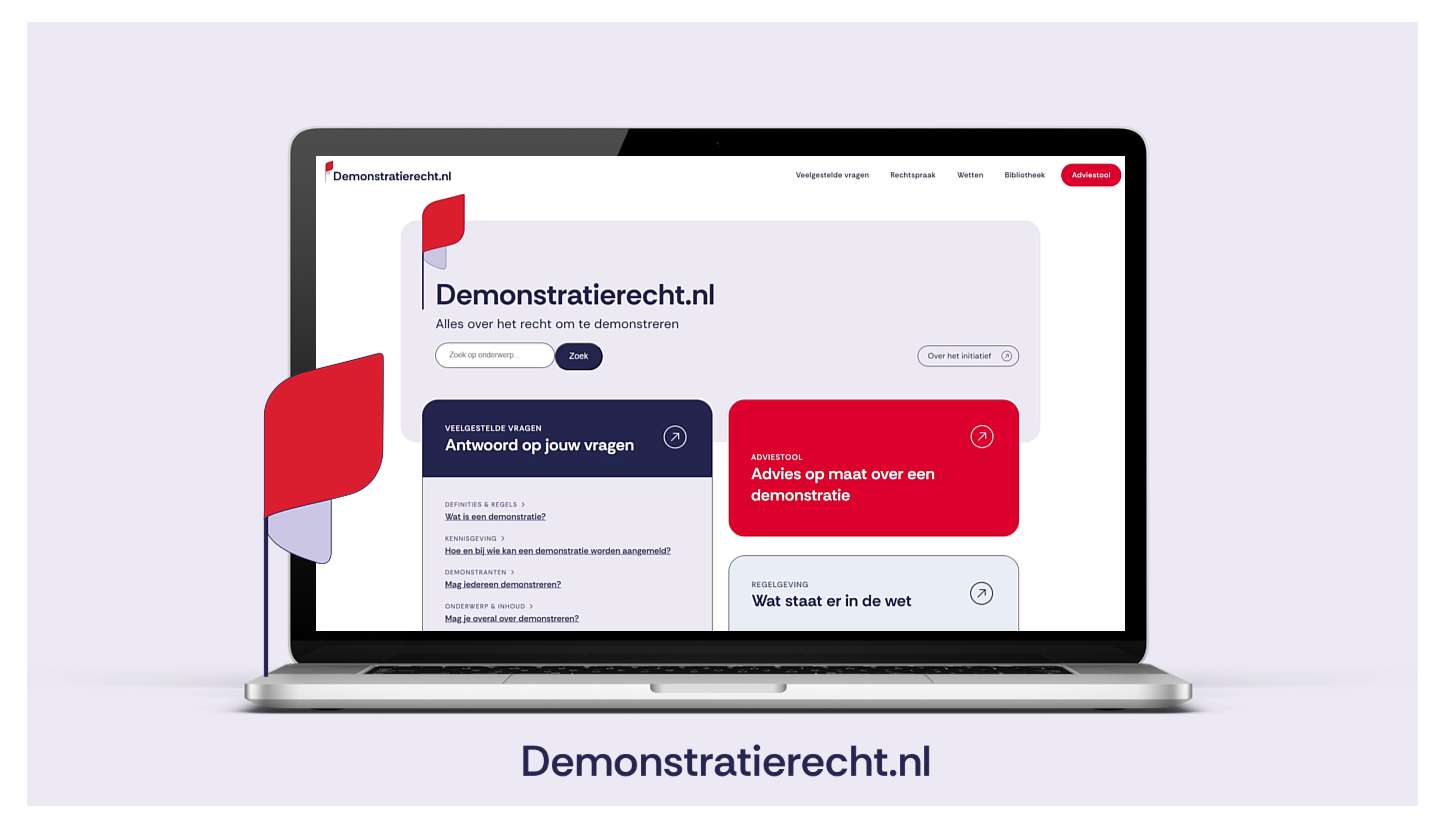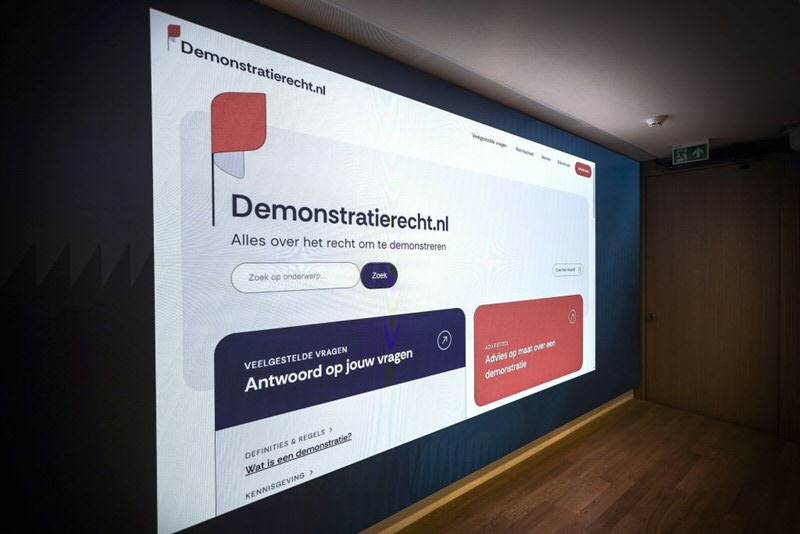Researchers Faculty of Law launch new website on the right to protest


Today, researchers from the Faculty of Law at the University of Groningen (UG) are launching the Dutch website www.demonstratierecht.nl. With this initiative, the researchers aim to meet the growing need for information about the right to freedom of peaceful assembly (the right to protest). The website consists of an extensive list of answers to frequently asked questions, a knowledge base with the most recent case law and an advice tool on the basis of which free customized legal advice can be obtained. To develop the website and keep it up-to-date for three years, funding was granted by the Ministry of the Interior and Kingdom Relations in the fall of 2023. The website is independent; the Ministry has not interfered with its content. All information on the website is available in Dutch and freely accessible to everyone.
The number of demonstrations in the Netherlands has increased significantly in recent years. Occupation and blockade actions by climate activists and protesting farmers, for example, lead to all sorts of questions about the right to protest. What is a protester allowed to do and what is not allowed? How far does the government's primary duty to respect, protect and facilitate demonstrations go, and under what conditions can it restrict or prohibit a demonstration? And what can third parties who are inconvenienced and harmed by a demonstration do? As researchers on the right to freedom of peaceful assembly, associate professor Berend Roorda and PhD candidate Noor Swart are asked questions almost daily by journalists, demonstrators, mayors, the judiciary and the police. To meet that need for information, they developed the website www.demonstratierecht.nl with a team of researchers. A website where everyone can find answers to questions regarding the right to freedom of peaceful assembly.
Roorda: 'The right to freedom of peaceful assembly is a fundamental right whose value in a democratic constitutional state can hardly be overestimated. At the same time, that right has limits and we also want to bring those clearly into the limelight.' As a PhD student, Swart is conducting research on the right to freedom of peaceful assembly. Swart: 'We have committed ourselves to creating a website that is as transparent as possible. All information is therefore accessible to everyone. We strive to share knowledge in understandable Dutch language that is relevant to protesters, journalists, (police) officials and mayors alike.'
Finding balance between fundamental right and limits
In developing the website, its creators, including IT law lecturer Laurent Jensma, carefully balanced between the fundamental nature of the right to freedom of peaceful assembly on the one hand and the limits to this right on the other. This was not easy, according to Roorda and Swart. For the necessary input and expertise, the makers involved many different people and organizations in building the website, including law and IT specialists, protesters, lawyers, mayors, police, justice and civil society organizations.
Liesbeth Smit of The Online Scientist designed and built the website.
More information
This article was published by the Faculty of Law.
More news
-
08 December 2025
Colourful Characters: Bert Röling
